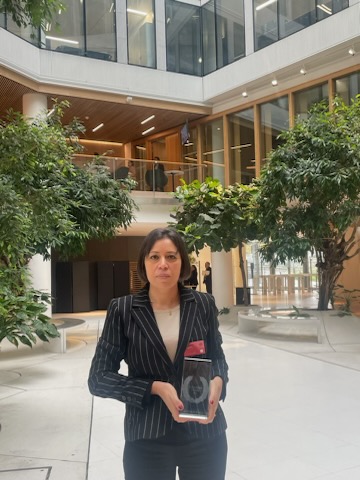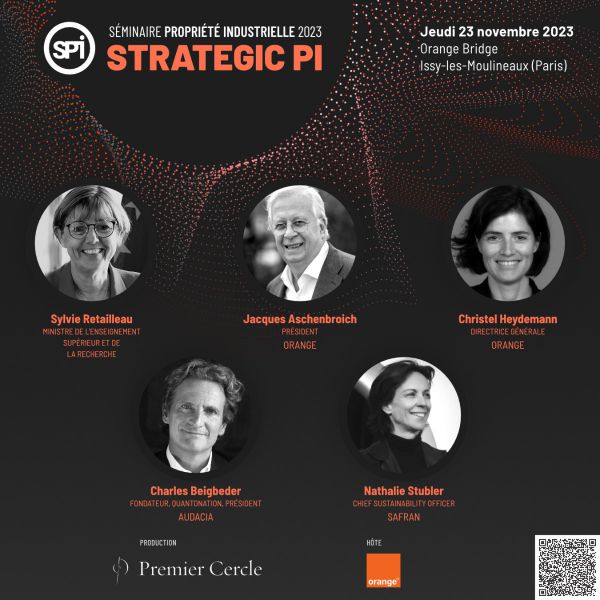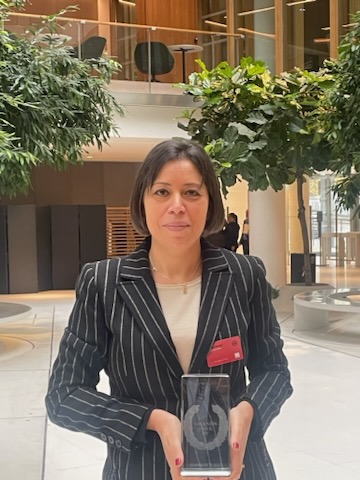 https://www.carnot-tsn.fr/wp-content/uploads/2024/01/bh-anr-bOOM.jpg
1280
1920
India Senouci
https://www.carnot-tsn.fr/wp-content/uploads/2021/09/logo-carnot-tsn.png
India Senouci2024-01-18 16:11:132024-01-18 16:11:13Projet ANR BOOM : « dégonfler » les bulles d’opinion politique en ligne
https://www.carnot-tsn.fr/wp-content/uploads/2024/01/bh-anr-bOOM.jpg
1280
1920
India Senouci
https://www.carnot-tsn.fr/wp-content/uploads/2021/09/logo-carnot-tsn.png
India Senouci2024-01-18 16:11:132024-01-18 16:11:13Projet ANR BOOM : « dégonfler » les bulles d’opinion politique en ligneCarnot TSN congratulates Ghaya Rekaya (Télécom Paris), researcher and founder of MIMOPT Technology, on winning the Séminaire PI 2023 prize!
5 décembre 2023 • industry of the future

The 9th edition of the 2023 IP (Intellectual Property) Seminar and the 2023 IP Grand Prix was held on Thursday 23 November 2023 at Orange’s head office in the Paris region. The aim of the IP seminar is to give the highest possible profile to the innovation and research development efforts of the most ambitious French companies in the industry. The conferences were organised around a Grand Prix PI 2023. Our Télécom Paris researcher and entrepreneur Ghaya Rekaya was one of the winners.
The programme included high added-value round tables on topics such as the challenges of the unitary patent system, intellectual property and AI, and the EU Data Act, as well as sector-specific round tables illustrating vertical approaches to IP (automotive, space and aeronautics). The event highlighted the importance of intellectual property in the economic performance of French industry, as well as in the promotion of innovations stemming from public research.
Top-level IP experts were on hand for the IP Grand Prix ceremony, which rewarded the most important French patent filers over the year N-1, the strongest growth by segment (listed and large companies, SMEs, ETIs, research establishments, higher education and government establishments) as well as filings in emerging sectors such as AI, quantum, IoT and defence.
It was in this context that Ghaya Regaya, a researcher and entrepreneur at Télécom Paris, part of the Institut Mines-Télécom and the Carnot TSN institute, was awarded the DeepTech Category Prize for her start-up MIMOPT Technology. To create this BtoB start-up in 2021 after 14 years of R&D, Ghaya Rekaya, an expert in digital communications, collaborated with Yves Jaouën, an expert in optical communications, and their former doctoral student Akram Abouseif.
MIMOPT Technology is developing an innovative Digital Signal Processing (DSP) solution to improve the throughput, performance and complexity of optical communication systems.
The technologies developed by MIMOPT make it possible to increase the throughput of optical fibres deployed today thanks to innovative coding solutions that significantly reduce interference between polarisation and wavelengths. With applications such as fibre optic communication, optical satellite communication, free-space optics and underwater communication, companies with optical communication systems can benefit from the knowledge, expertise and simulator of MIMOPT to design or improve their optical communication system. The MIMOPT team is also working on multi-mode and multi-core fibres, which will be the fibres of the future.These will solve throughput problems, as long as they do not generate prohibitive additional energy costs. MIMOPT proposes to respond to this problem with coding solutions that save the energy injected into the fibres.
Congratulations to Ghaya Regaya and her team for this SPI 2023 award!





















